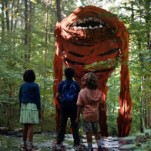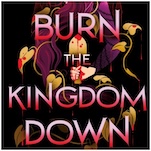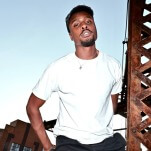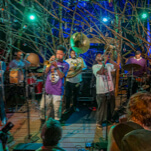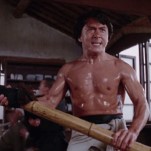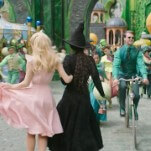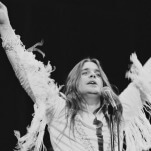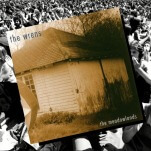Catching Up With Foster the People’s Mark Foster
Watched on by his bandmates and a cameraman, Mark Foster’s face goes numb and his eyes bulge out. Staring into space as if his mainframe paused his human facade to reallocate power to the computer brain, searching a database for the right folder/file combination, the Foster The People singer takes 15 seconds to settle on the right phrase and refocuses. “It was a really painful record to make,” he states, then lets the words hang for several more seconds.
Sitting in a Toronto hotel room, Foster is describing the making of Supermodel—the follow-up to his group’s breakout 2011 debut, Torches, and its earworm-inducing calling card, “Pumped Up Kicks.” Written in a fervor as the frontman was battling substance abuse issues, Foster says Supermodel is more than just a compilation of singles, “it’s a conversation with God.”
Here he discusses his personal battle with “demons,” learning to resent the materialism of fame and how a trip to the developing world brought on a personal revelation.
Paste: Torches was made quickly in the wake of the success of “Pumped Up Kicks.” How did the recording of Supermodel differ from that experience?
Mark Foster: It was very different. This record is a completely different animal. We wanted it to sound more like a band playing together in a room.
Paste: Does that description extend to the creative process?
Foster: I wrote all the lyrics in a couple of weeks as to time-stamp what I was going through. The songs were written in a seven-month time period.
Paste: What happened during those weeks that you felt was important to time-stamp?
Foster: I was going through a lot of personal struggle at the time. A lot of soul searching. It was a really painful record to make.
Paste: What made it painful?
Foster: I was purging a lot of stuff. I was confronting a number of demons going into this record that had kind of grown in strength during the touring for Torches.
Paste: You’ve admitted you had a pretty bad substance abuse issue when you first moved from Cleveland to Los Angeles. Did you relapse?
Foster: I don’t really want to talk about it.
-

-

-

-

-

-

-

-

-

-

-

-

-

-

-

-

-

-

-

-

-

-

-

-

-

-

-

-

-

-

-

-

-

-

-

-

-

-

-

-

